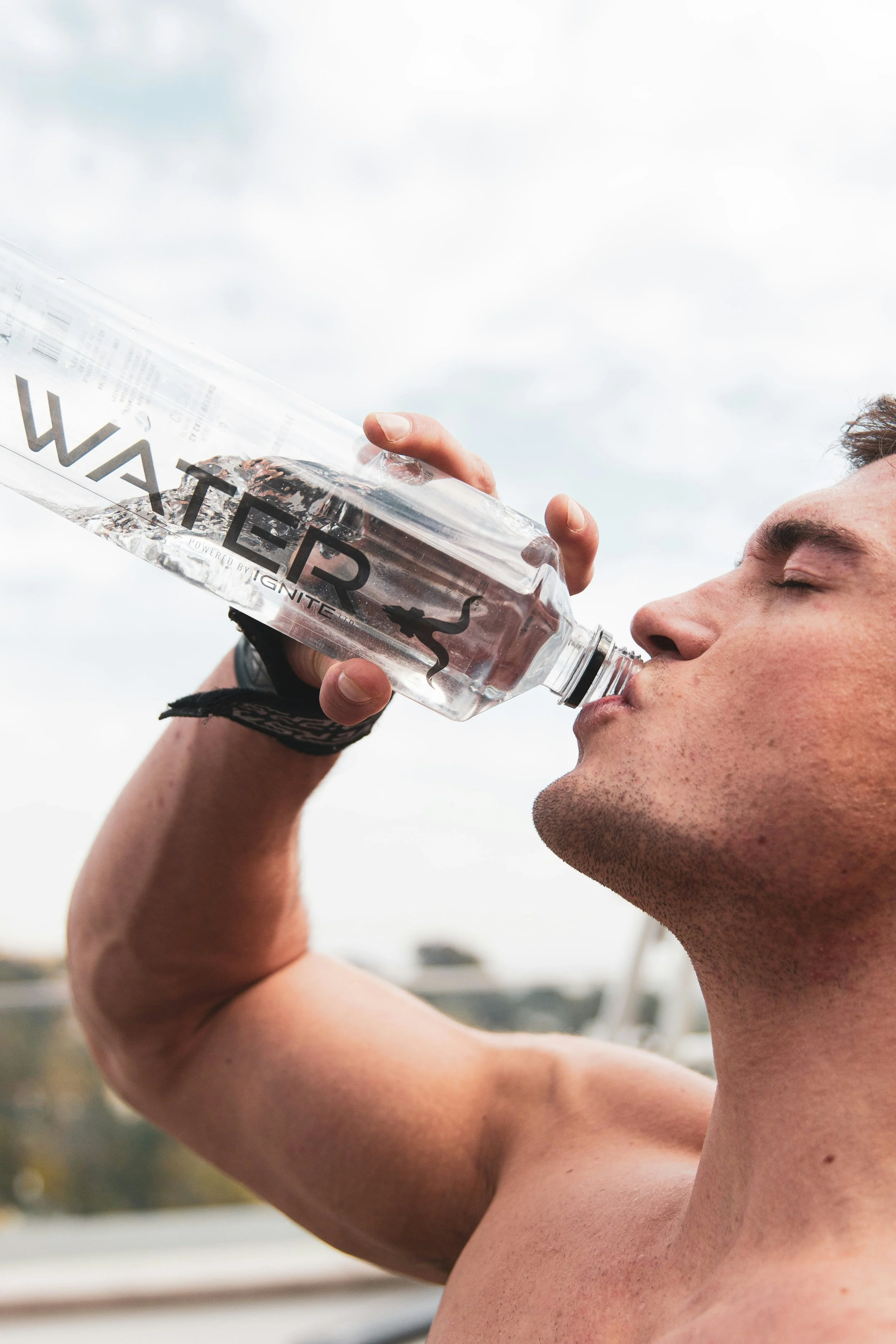HYDRATION AND EXERCISE PERFORMANCE.
The benefits of hydration
We all know that water is essential for life but did you know it’s also one of the most important performance enhancers around.
Whether you’re hitting the gym, cycling through the trails, or working with your exercise physiologist on strength and mobility, hydration plays a major role in how your body performs and recovers. Even mild dehydration can affect your endurance, focus, and coordination often without you realising it.
At JY Exercise Physiology, I often see clients notice instant improvements in energy, concentration, and exercise recovery just by staying more hydrated. Let’s look at how water impacts your body during exercise and how to get your hydration right every time.
Why Hydration Matters
When you exercise, your body works hard to regulate its internal temperature. Sweating is your body’s way of cooling down but as you sweat, you lose water and electrolytes (sodium, potassium, magnesium).
If you don’t replace these fluids, your blood volume decreases, your body temperature rises, and your muscles don’t get enough oxygen. The result? You’ll feel sluggish, tired, and less coordinated even if your fitness hasn’t changed.
The Effects of Dehydration on Performance
Even small drops in hydration can have a big impact. Research shows that losing as little as 2% of your body weight in fluid can significantly impair performance and cognitive function.
Common Signs of Dehydration:
Fatigue or sluggishness
Headache or light-headedness
Muscle cramps or weakness
Dry mouth and lips
Dark yellow urine
Faster heart rate or shortness of breath
Performance Impacts Include:
Reduced endurance: You tire faster and can’t maintain intensity.
Poor coordination: Reaction times slow down.
Increased fatigue: Your body has to work harder to regulate temperature.
Impaired recovery: Muscle repair and energy replenishment slow down.
Simply put hydration is one of the easiest ways to support better training results, performance, and recovery.
Hydration and the Brain
Hydration doesn’t just affect your muscles it also impacts your mental focus, reaction time, and motivation. Even slight dehydration can reduce concentration and make exercise feel harder than it actually is.
For athletes, older adults, or those doing rehabilitation training, this can be the difference between completing a session effectively and struggling through it.
So if you find your workouts feel unusually tough or your focus fades halfway through, try increasing your fluid intake before assuming your fitness is the issue.
How Much Water Do You Need?
There’s no one-size-fits-all answer — your hydration needs depend on your body size, sweat rate, activity level, and environment.
As a general guideline:
Before exercise: Drink 300–600 mL of water 1–2 hours before training.
During exercise: Sip 150–250 mL every 15–20 minutes (more if it’s hot).
After exercise: Replace every 1 kg of body weight lost with ~1–1.5L of fluid.
💡 Exercise Physiology Tip: Weigh yourself before and after intense sessions to estimate your fluid loss this helps tailor your hydration plan more accurately.
Don’t Forget Electrolytes
When you sweat, you lose more than just water you also lose sodium, potassium, and magnesium. These electrolytes are vital for:
Muscle contractions
Nerve signalling
Preventing cramps
Maintaining fluid balance
If you’re training for longer than an hour, or in hot and humid conditions, plain water might not be enough.
Great Electrolyte Sources:
Electrolyte tablets or powders (low sugar options preferred)
Coconut water
Milk (great recovery option with carbs + protein)
Bananas, yoghurt, or a small pinch of salt in your water
Hydration for Everyday Health
Hydration isn’t just about exercise performance it affects joint health, digestion, circulation, and recovery. For anyone involved in rehab or injury prevention, staying hydrated helps keep muscles supple and joints lubricated, reducing stiffness and soreness.
Even mild dehydration can slow recovery from injury or surgery, as your tissues rely on water for nutrient delivery and waste removal.
At JY Exercise Physiology, I often remind clients:
“Stay hydrated no matter what you do, your body will lose more water than you think .”
☀️ Hot Weather and Sweat Rates
If you’re training outdoors in Queensland’s warmer months, your hydration needs go up dramatically. You may lose up to 1–2 litres of sweat per hour, especially during endurance training.
To Stay on Top of Hydration:
Drink before you feel thirsty (thirst means you’re already dehydrated).
Wear breathable, moisture-wicking clothing.
Avoid alcohol or excess caffeine before workouts.
Include electrolytes during longer or hot sessions.
Hydration and Weight Loss
For those focused on fat loss, hydration also plays a role. Water helps control appetite, supports metabolism, and can even improve exercise output all of which make your workouts more effective.
Try having a glass of water 30 minutes before meals or training it’s a simple, evidence-backed way to improve energy and support weight management goals.
Stay Hydrated
Hydration might seem simple, but it’s one of the most overlooked aspects of training and recovery. Whether you’re an athlete, weekend warrior, or recovering from injury, staying hydrated can dramatically improve performance, focus, and recovery.
Make it a daily habit not an afterthought. Drink water regularly throughout the day, pay attention to your body’s signs, and don’t forget to replace electrolytes when you sweat more.
If you’re unsure how to balance hydration with your exercise or recovery program, JY Exercise Physiology can help. I’ll provide guidance and recommendation on plan that considers your activity level, environment, and personal goals to help you perform at your best safely and effectively.
Schedule a consultation today and learn how hydration can help you.
Located in Upper Mount Gravatt and speak with an Accredited Exercise Physiologist now to discuss how I can facilitate your needs.
Feel free to explore our other blogs to learn more and gain additional insights.
Call +61 421 967 711

